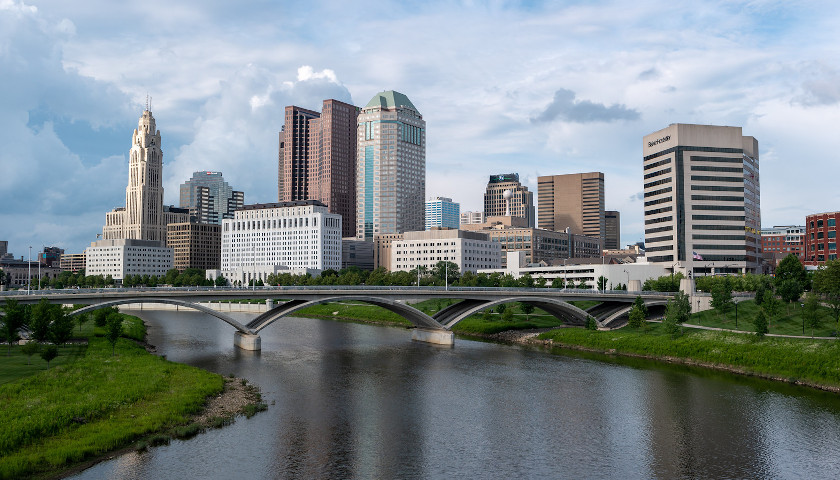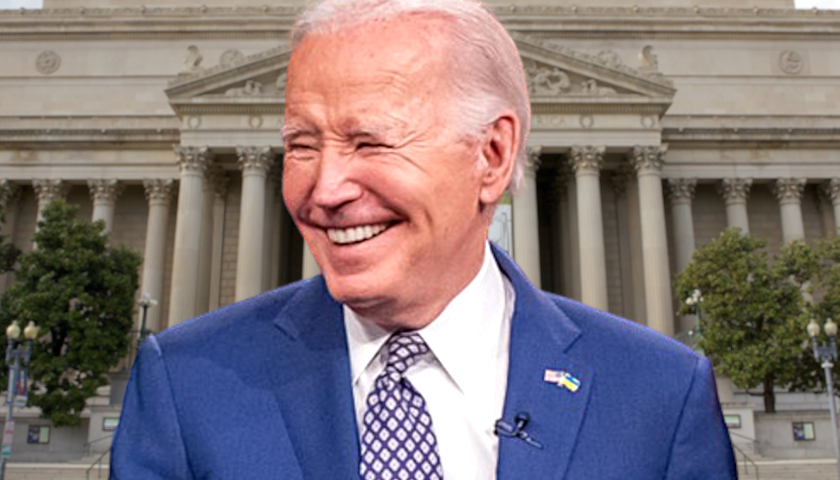The Buckeye Institute said that it and three employees filed a lawsuit over the taxing of workers’ income in Columbus since they do not live in the city and were not allowed to work there during Ohio’s Stay-at-Home order.
The lawsuit, which is available here, was filed in the Court of Common Pleas in Franklin County.
The Beacon Institute says the taxation is “unlawful” and is a violation of due process rights under the Fifth and Fourteenth Amendments to the U.S. Constitution and it violates Article I, Section 1 of the Ohio Constitution.
The institute tweeted, “We filed a lawsuit against Columbus & the state of #OH on the unconstitutional taking of income tax from workers who do not live in, and were prohibited from working within, the city’s jurisdiction during Ohio’s Stay-at-Home order.”
We filed a lawsuit against Columbus & the state of #OH on the unconstitutional taking of income tax from workers who do not live in, and were prohibited from working within, the city’s jurisdiction during Ohio’s Stay-at-Home order. https://t.co/GAh9btiuCG
— The Buckeye Institute (@TheBuckeyeInst) July 9, 2020
“The law in this case is straight out of a dystopic novel: the state first prohibited workers from going into their offices during the Stay-At-Home order, then passed an emergency law absurdly ‘deeming’ all work that was actually performed at home to have been performed in the higher-taxed office location instead. It is a legal fiction, and it is unconstitutional,” said Robert Alt, president and chief executive officer of The Buckeye Institute.
Alt said, “Not only have our employees — along with thousands of others like them across Ohio — had municipal income taxes unlawfully taken from them during the Stay-at-Home order, but The Buckeye Institute also has been forced to participate in perpetrating this constitutional violation, betraying the very principle of limited government that is an essential component of our organization’s mission.”
The employees involved in the lawsuit are Rea S. Hederman Jr. of Powell, Greg R. Lawson of Westerville and Joe Nichols of Newark Township.
The lawsuit states that as a result of the COVID-19 pandemic and to comply with Ohio’s emergency orders requiring nonessential businesses to close, The Buckeye Institute required its employees to work from home. However, House Bill 197 “deemed” all work performed at private homes during the health emergency to have been performed at the employees’ principal place of work for the purposes of taxation, and the City of Columbus then continued to take taxes from the three employees despite the fact that they were no longer working within and did not live in the city’s jurisdiction.
Before House Bill 197 was passed, the city or village a person paid municipal income taxes to depended on where he or she worked the most, the Canton Rep said. Those who work and live in a township pay no local income tax.
House Bill 197’s provisions will stay in effect until 30 days after Gov. Mike DeWine declares the pandemic emergency is over.
– – –
Jason M. Reynolds has more than 20 years’ experience as a journalist at outlets of all sizes.






I used to work at a library. We had a rebuilding project in 1988-1990 which meant we relocated to an unused auto dealership that was outside the city limits. During that time the people who were not city residents did not have the city income taxes taken out of their pay since they were not working in the city. So this ruling is nothing but a crock. I hope they win.